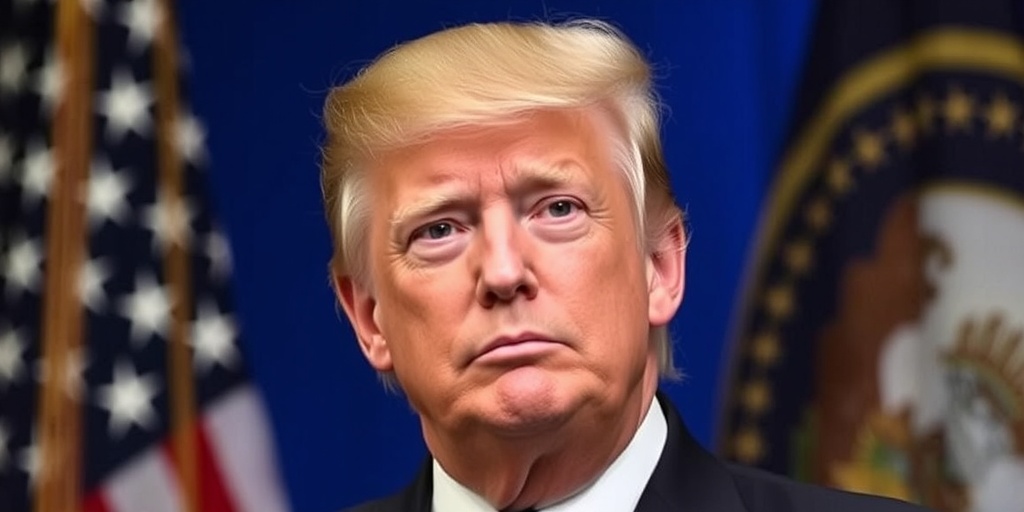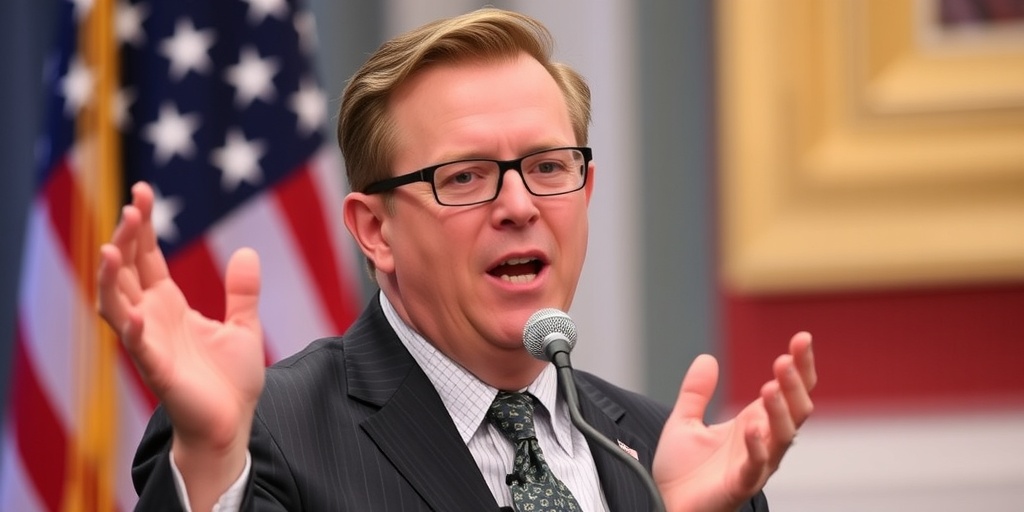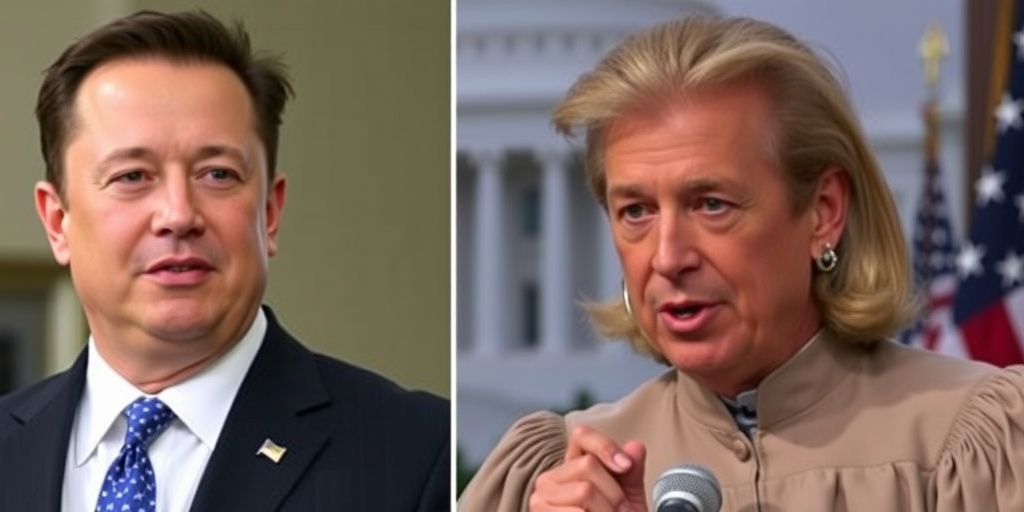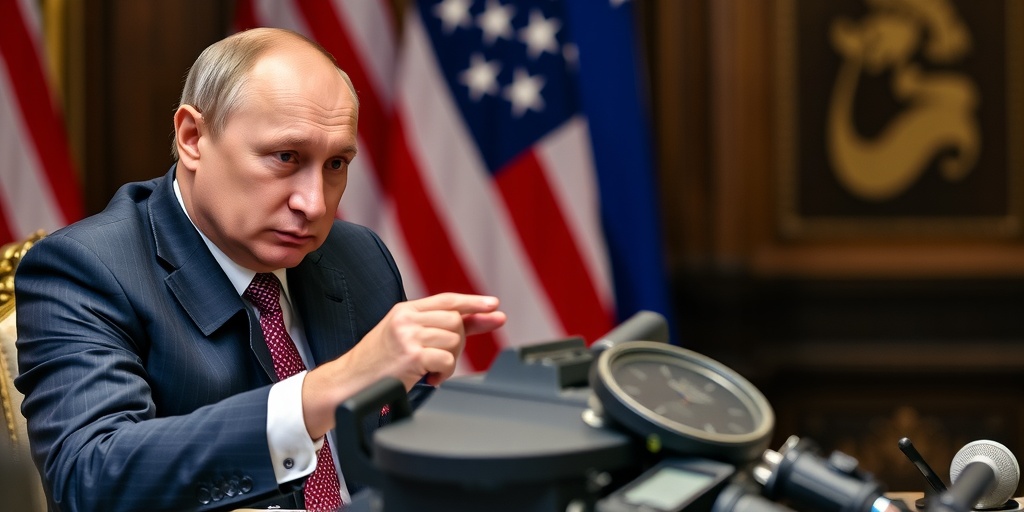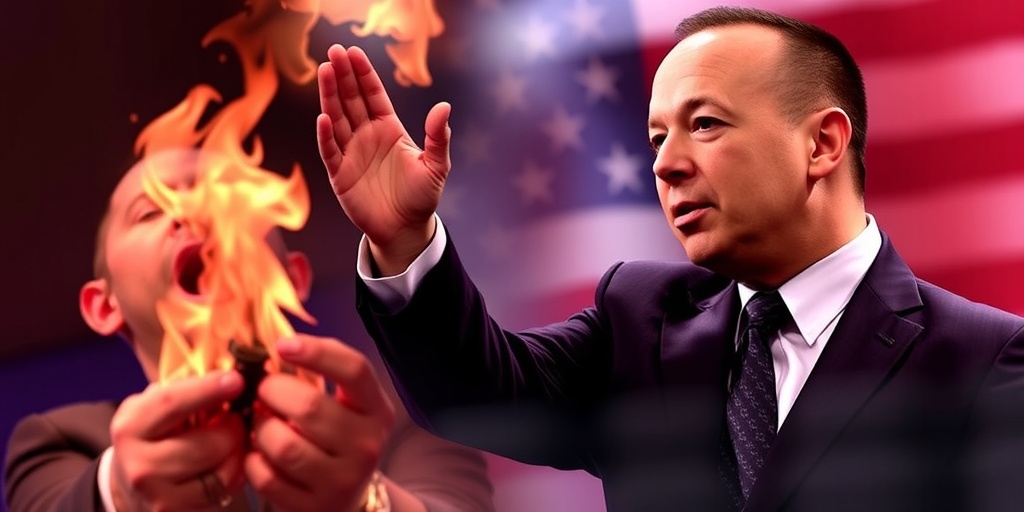Now Reading: Rejecting Musk’s Proposal
-
01
Rejecting Musk’s Proposal
Rejecting Musk’s Proposal
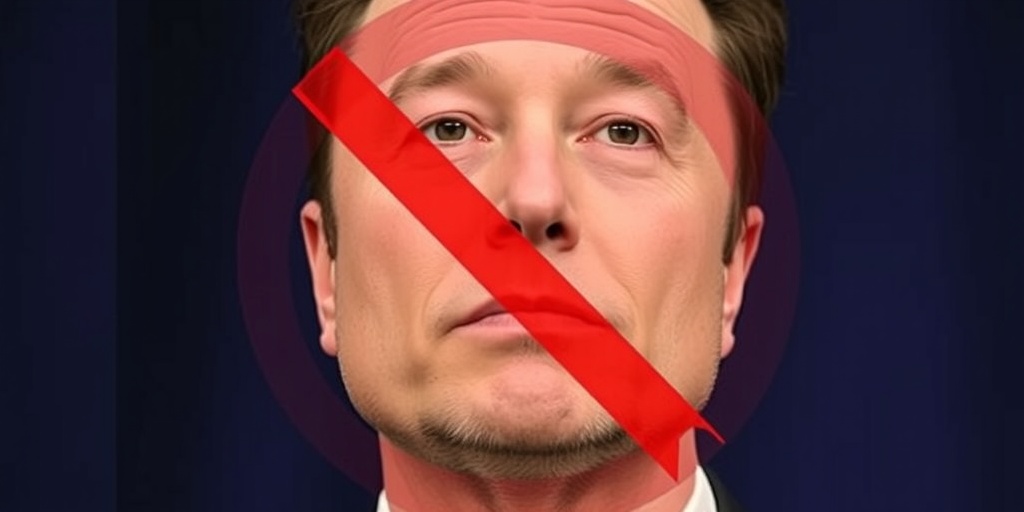
Title: Tensions Rise in the Trump Administration Following Elon Musk’s Directive to Federal Employees
In a notable incident reflecting the evolving dynamics of power within the Trump administration, senior cabinet officials have publicly expressed resistance to a directive issued by Elon Musk. Musk’s call for federal employees to either summarize their weekly accomplishments via email or resign, which he announced on social media platform X, has sparked significant controversy and pushback from key government leaders.
This situation marks a rare moment of defiance among high-ranking officials who have generally acted in concert with the White House. The escalated response unfolded over the past weekend when Musk’s demand prompted influential figures within the State Department, the FBI, the Energy Department, and several other agencies to advise their employees against complying. Notably, many of these agencies are overseen by Trump allies, including Kash Patel, Tulsi Gabbard, and Pam Bondi.
One internal communication from the Justice Department instructed employees to disregard Musk’s directive, emphasizing the “confidential and sensitive nature of the department’s work.” This clear rebuke signaled that agency leaders were adamant about the traditional chain of command: their departments report to them, not to a tech entrepreneur notably not confirmed by the Senate. The communications suggest that, while there is respect for the President and his agenda, Musk’s overreach was not taken lightly.
As the situation unfolded, President Trump continued to support Musk, expressing approval of the directive and implying that those who did not respond could face termination. In an ironic twist, the Office of Personnel Management later advised agencies that responding to Musk’s email request was voluntary, further complicating the narrative and underscoring internal divisions within the administration.
Musk’s position remains ambiguous within the government framework. With no official job description and no Senate confirmation, his authority appears nebulous, leaving many questions regarding his role and powers. In a forthcoming cabinet meeting, the presence of Musk remains uncertain, which might further highlight the fracture between traditional government roles and the increasing influence of private individuals in public positions.
However, the backlash against Musk’s call for accountability among government employees suggests that not all officials are willing to submit to the whims of private-sector leadership, even one as powerful and visible as Musk. Some cabinet members have taken it upon themselves to clarify that their agencies are accountable to them first and foremost. This pushback could set a precedent for future interactions between Musk and government officials.
As his controversial message reverberates throughout the federal workforce, Musk is navigating a complex political landscape. His attempts to downplay the significance of the backlash—labeling it as an overreaction to what he considered a simple request—have not erased the dissatisfaction among many workers, especially when some began to voice their dissent regarding the administration’s approaches to governance.
In a series of updates, Musk’s recent actions have also included congratulating leaders of right-wing political parties in other countries and vocalizing his views on reducing government waste and fraud. Nonetheless, his popularity among voters remains mixed, with recent polls indicating a more complicated picture regarding his initiatives, particularly with the establishment of the Department of Government Efficiency.
On another front, significant hurdles have emerged for Musk, as a federal judge barred his team from accessing crucial student loan databases, complicating his efforts to consolidate control over government data and operations.
Meanwhile, the administration is also dealing with challenges related to other departments, such as the Food and Drug Administration (FDA), which has experienced turmoil following a series of layoffs that were later reversed amid public backlash and operational necessities. This reshuffling within the FDA, alongside concerns raised by figures like Senator Elizabeth Warren regarding Musk’s potential access to sensitive information, underscores a growing unease regarding the intersection of tech leadership and government oversight.
Adding to the intrigue, Vivek Ramaswamy, a former presidential candidate, announced his campaign for governor in Ohio, distancing himself from Musk amidst shifting political loyalties and aspirations. Ramaswamy’s move has raised questions about whether support from Trump and Musk will play a critical role in his campaign moving forward.
With these developments illuminating the tensions between the Musk-led initiative and established governmental practices, the full ramifications of this clash might continue to reverberate through the federal government for the foreseeable future. The increasing pushback against Musk’s influence suggests a pivotal moment for federal employees as they navigate the new order defined by the Trump administration.
Stay Informed With the Latest & Most Important News
Previous Post
Next Post
-
 01New technology breakthrough has everyone talking right now
01New technology breakthrough has everyone talking right now -
 02Unbelievable life hack everyone needs to try today
02Unbelievable life hack everyone needs to try today -
 03Fascinating discovery found buried deep beneath the ocean
03Fascinating discovery found buried deep beneath the ocean -
 04Man invents genius device that solves everyday problems
04Man invents genius device that solves everyday problems -
 05Shocking discovery that changes what we know forever
05Shocking discovery that changes what we know forever -
 06Internet goes wild over celebrity’s unexpected fashion choice
06Internet goes wild over celebrity’s unexpected fashion choice -
 07Rare animal sighting stuns scientists and wildlife lovers
07Rare animal sighting stuns scientists and wildlife lovers













